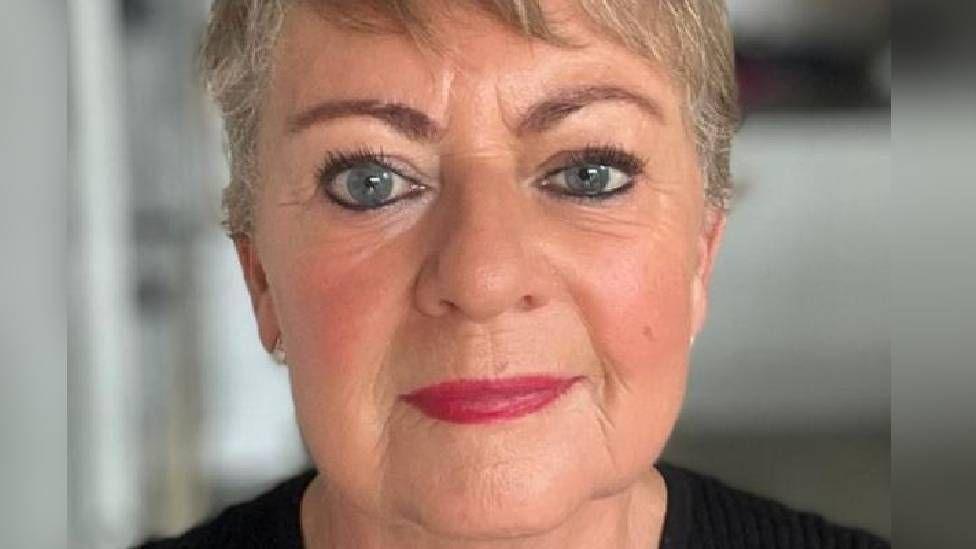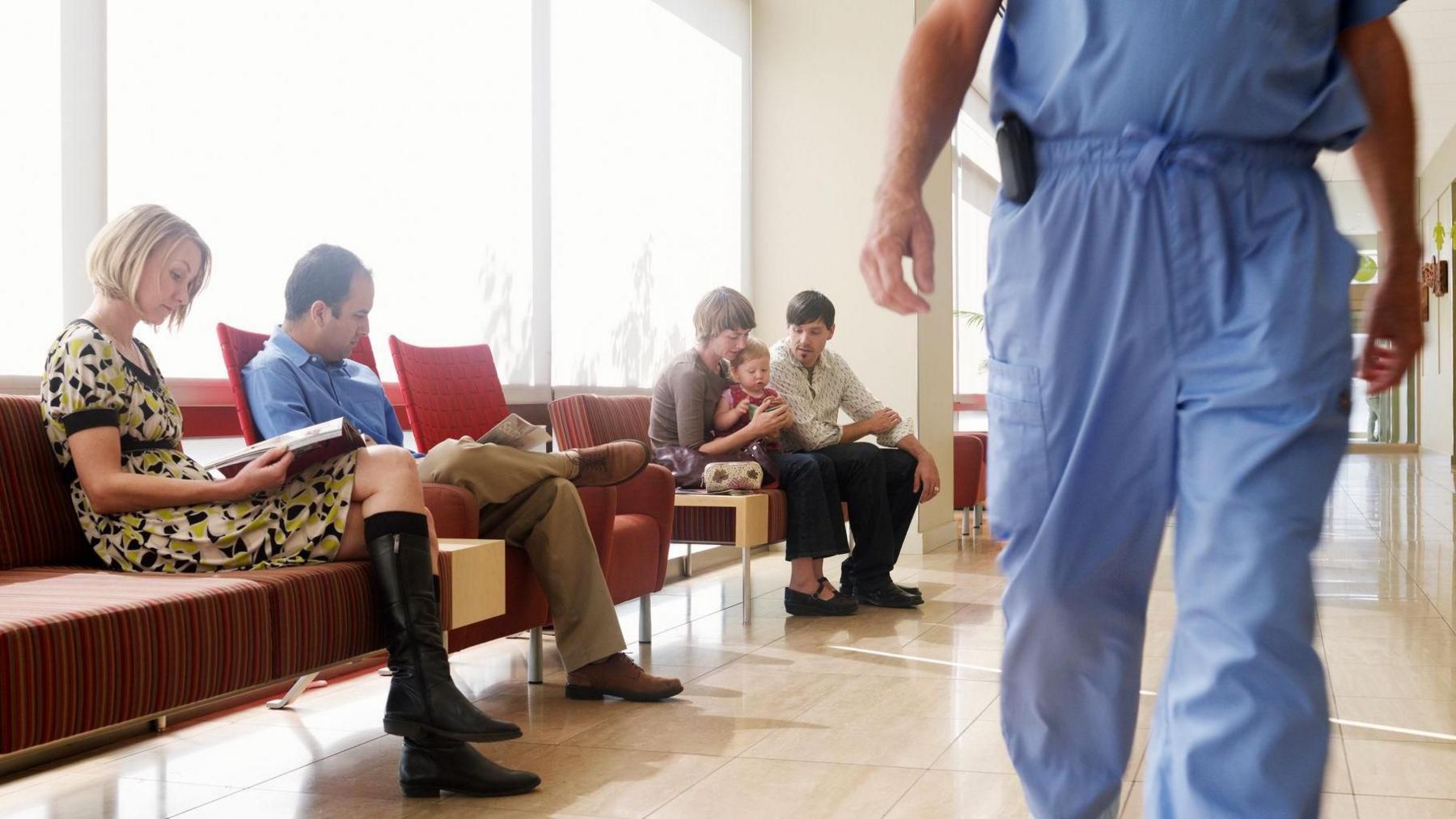New NHS boss 'concerned' about health board targets

Jacqueline Totterdell became the new NHS Wales boss in July this year
- Published
The new boss of NHS Wales has admitted that the target to eliminate the longest waits for treatment by the spring will not be achieved all health boards.
Welsh health secretary Jeremy Miles had pledged that nobody would be waiting two years or more for treatment by the end of March - and since then he said he was "confident" this would be met.
The latest statistics, external show more than 8,700 Welsh patients had been waiting two years or more compared to just 168 patients across England.
But in her first BBC Wales interview since becoming chief executive, Jacqueline Totterdell suggested Wales' biggest health board - Betsi Cadwaladr - will fall short.
Long NHS waits to end by 2026, says health board
- Published5 June
New flu virus mutation could see 'worst season in a decade'
- Published2 days ago
Emergency care in north Wales 'in crisis'
- Published30 September
Asked if she could give a "cast iron" guarantee that all of NHS Wales would meet the health secretary's promise, Ms Totterdell said the target "will be met in nearly all health boards".
But north Wales was "the area we're more concerned about", she said.
"I was up there last week and saw first-hand some of the issues up there.
"They are eminently fixable... we're talking with the health board (about) what more support we can give them to get to that point."
Statistics show almost 63% of all patients in Wales waiting two years or more are in the Betsi Cadwaladr area.
The north Wales health board was put into special measures for the second time by the Welsh government in February 2023 over governance, leadership and performance problems.
Asked whether she thought the health board was "not fit for purpose", Ms Totterdell replied that she had not yet come to a conclusion.
"But I wouldn't want to think that throwing it all up in the air is going to be the right thing either because that will be quite distracting," she added.

The Welsh government said no-one should be waiting for more than two years for treatment by the end of March
In a wide-ranging interview Ms Totterdell, who left the NHS in England to take up the role, was also asked whether she had concerns about the resilience of the Welsh NHS this winter, given warnings that the flu season has started earlier this year.
Experts say flu rates are rising around five weeks earlier than normal which could hit elderly patients particularly badly.
Ms Totterdell said that she was "keeping a very close eye on it" but was encouraged that more patients over 65 years old had taken the flu vaccine so far this year compared to 2024.
But she added she wanted more younger people in clinically vulnerable groups and a larger proportion of health and care staff to take up the offer of vaccination.
"In the over 65s we are at about 50% (uptake) - which is brilliant but we need to vaccinate more of the vulnerable 16-64-year-olds," she said.
Ms Totterdell also recounted how she "nearly died" after becoming critically ill with flu six years ago.
"I had the flu and was hospitalised in 2019," she said.
"If I hadn't been vaccinated then I probably wouldn't be here today."

Betsi Cadwaladr health board was put in special measures for the second time in February 2023
As the Welsh government's top health civil servant, Ms Totterdell will be responsible for managing the NHS in Wales through the next Senedd election.
Experts claim the vote could be the most significant in the history of devolution.
The current health secretary has already announced he will not be standing for re-election - and the polls suggest Labour might lose grip on power.
Asked whether she had begun discussing with other parties their plans for the NHS, Ms Totterdell said: "We can support a new government or new cabinet secretary in building their manifesto for health so that they will actually do the best thing for the population of Wales.
"Some of the evidence we're beginning to look at is where Wales can learn from and where in Wales can we actually spread best practice."